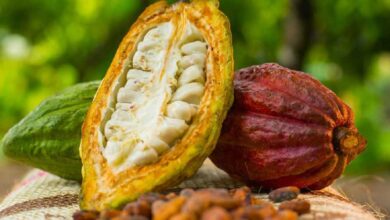Mahama unveils bold Agribusiness vision: pushes for year-round farming

President John Dramani Mahama has laid out a bold and far-reaching vision for Ghana’s agribusiness sector, stressing that agriculture must be the foundation for industrial growth, job creation, and long-term economic transformation.
Speaking at the National Agribusiness Dialogue in Accra on Friday, the President expressed concern over Ghana’s continued reliance on rain-fed agriculture and raw material exports, stating that the time has come for a decisive shift toward a value-added, agro-industrial economy.
Describing agribusiness as his passion, President Mahama emphasized the urgency of revamping Ghana’s agricultural infrastructure and integrating it with industrial development. He shared a personal experience of losing 40% of his maize yield to a 10-week drought, which prompted him to invest in pivot irrigation.
“After that experience, I said never again. I am now investing in pivot irrigation. By September we will plant, and once we harvest, we’ll replant,” he said.
He made it clear that Ghana must move away from rainfall-dependent farming and embrace full-scale irrigation and year-round cultivation.
The President reaffirmed his commitment to completing the Eastern Corridor road project, describing it as vital to trade between Ghana’s northern food-producing zones and the industrial centres in the south.
He announced that the project has been prioritized under his administration’s Big Push infrastructure agenda and revealed that procurement processes are already underway to bring contractors back on site.
“The Eastern Corridor has been neglected for far too long. But I can assure you, it is now a priority,” he said, adding that part of the road involves a bridge funded by Japan, and that he would be engaging Japanese authorities to ensure its swift completion.
President Mahama also launched the Feed the Industry programme—a major policy initiative aimed at aligning agriculture with industrial growth. He explained that the strategy would focus on ensuring a steady supply of raw materials to Ghanaian factories to increase their capacity utilization from the current 30–40% to 70–80% or higher.




